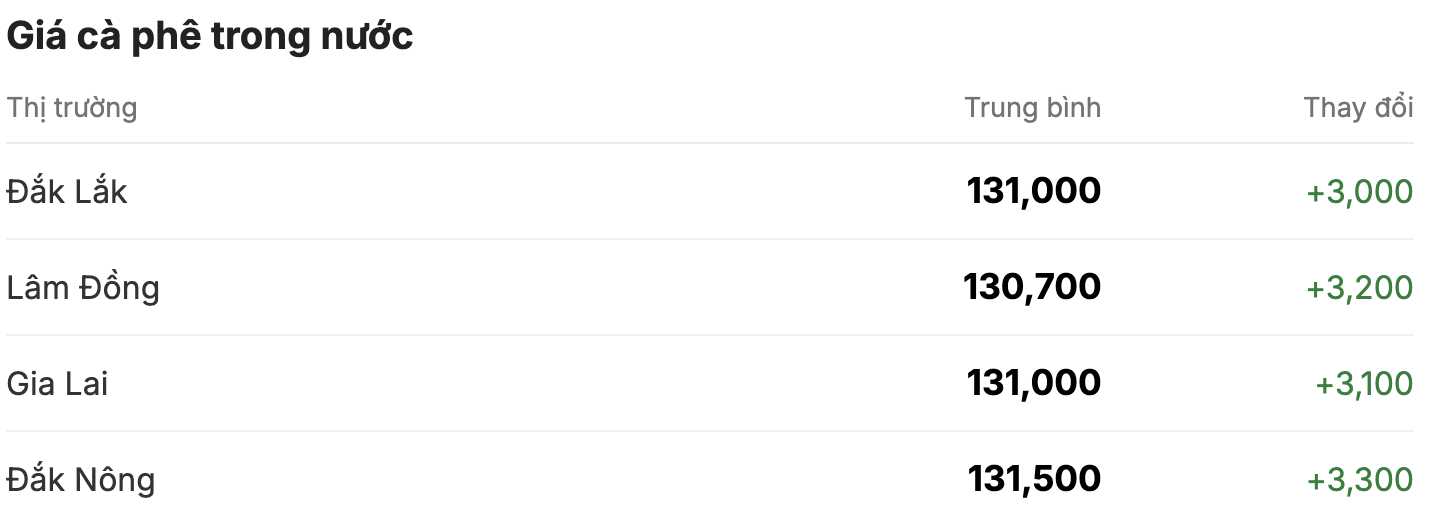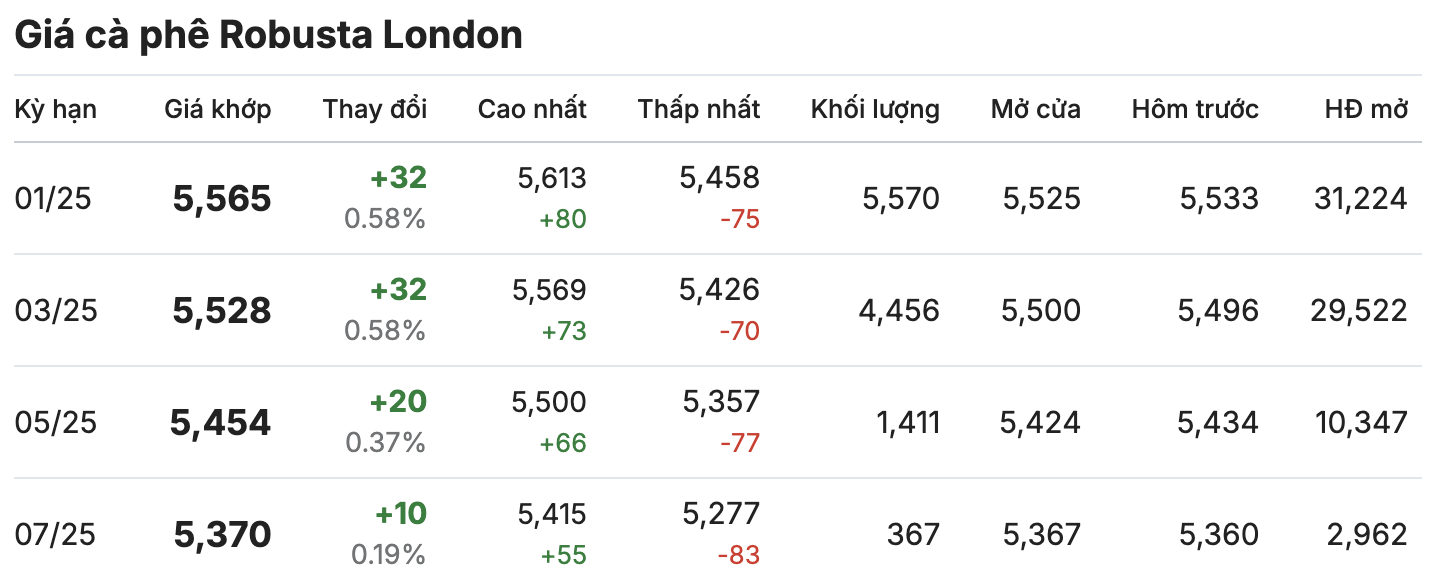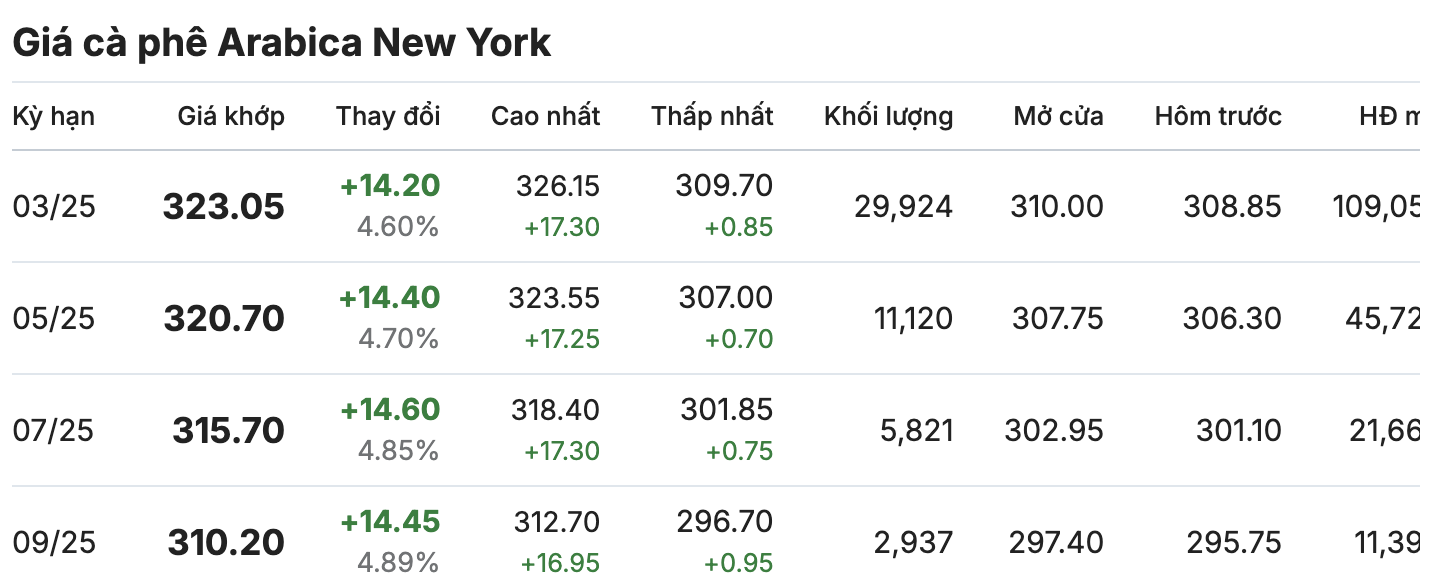As of 11:30 a.m. today (November 29), the domestic coffee market continued to break out, with an average increase of 3,100 VND/kg, causing prices to fluctuate between 130,700 - 131,500 VND/kg. The average coffee purchase price in the Central Highlands provinces is 131,200 VND/kg.
Lam Dong is still the province with the lowest coffee purchasing price in the Central Highlands. Compared to yesterday's closing price, coffee prices in this region increased sharply by 3,200 VND/kg, standing at 130,700 VND/kg.
In the same direction, coffee purchasing price in Gia Lai province also increased to 131,000 VND/kg.
Dak Nong province maintained its position with the highest coffee purchase price in the country, increasing by 3,300 VND/kg to 131,500 VND/kg.
Following is Dak Lak province, coffee price increased by 3,000 VND/kg, currently listed at 131,000 VND/kg.
Domestic coffee prices are climbing. After a week of continuous upward adjustments, the coffee purchase price has increased by more than 13,000 VND/kg, setting a new peak.

On the London and New York exchanges, the coffee market increased simultaneously in all terms. The contract for delivery in January 2025 increased by nearly 1% (equivalent to 32 USD/ton), standing at 5,565 USD/ton. The contract for delivery in March 2025 was listed at 5,528 USD/ton, up 0.58% (equivalent to 32 USD/ton).

Similarly, developments in the New York Arabica coffee market showed that the December 2024 and March 2025 delivery terms remained unchanged, listed at 323.05 cents/lb and 320.70 cents/lb, respectively.

The upward trend in coffee prices shows no signs of stopping.
Brazil and Vietnam are the world’s two largest coffee producers, with Brazil focusing on premium Arabica beans and Vietnam dominating the cheaper Robusta market. Vietnam’s coffee harvest has begun to slow.
The recent coffee fever is believed to be due to the Chinese market increasing purchases with a recent agreement reached with Luckin Coffee (China). According to the agreement, the Chinese coffee company will buy up to 240,000 tons of coffee per year from 2025 to 2029.











